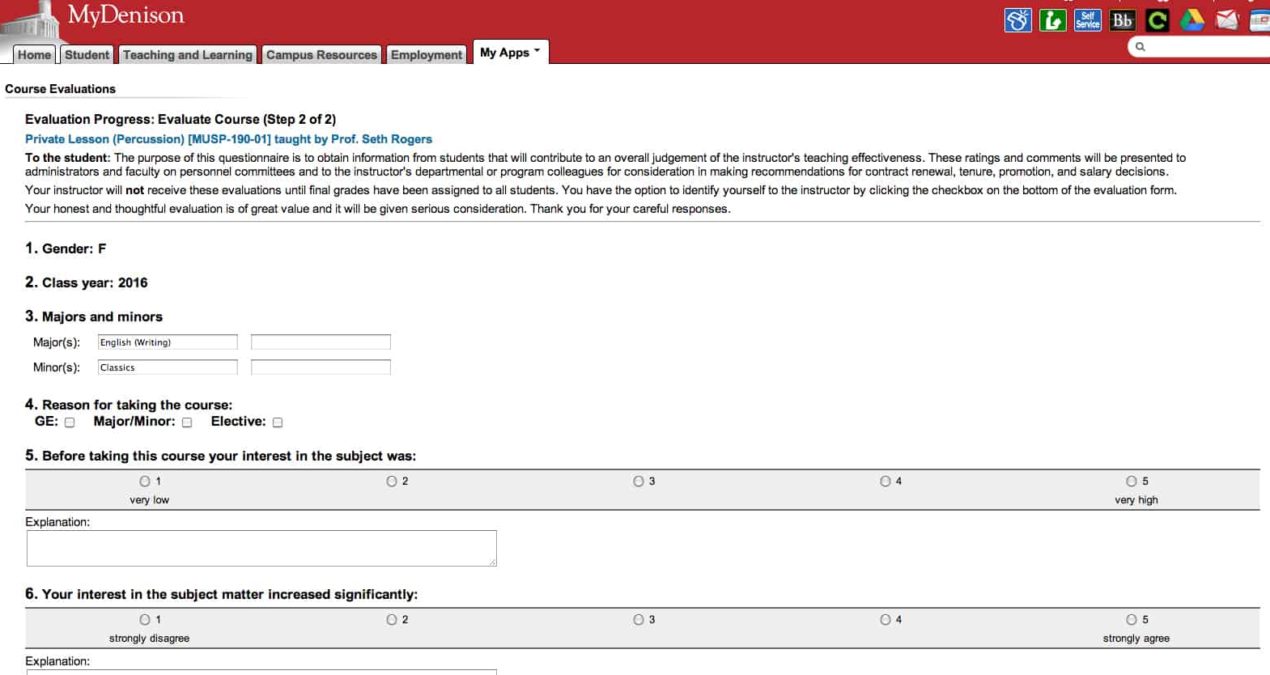By Emily Shane
Staff Writer
The course load of the semester has reached its climax, students have read the assigned books, essays and handouts, they have turned in papers, asked their questions and gone to office hours with various professors. Now it’s time for course evaluations.
Course evaluations can be a valuable resource for professors. Paul Djupe, a professor in the Department of Political Science, said “[course evaluations] are important for three reasons—they give students a say in the process of their learning and they provide my professorial species the only systematic data we have about whether what we planned for our course worked.
The third reason they are important is one we at Denison have not exploited—they can inform institutional conversations about learning environments, teaching styles, student involvement, and many other important questions.”
However, “the tough thing about course equations is that they ultimately help the next class, not the current class,” said Lew Ludwig, a professor in the math and computer science department.
“Students appear to know very little about the extent to which faculty take evaluations seriously and are in turn evaluated based on them,” said Djupe. “Students benefit because we take them seriously and reformulate our courses to make them more effective.”
That sentiment is reflected in students’ views. Yusuf Ahmed ‘16, an international studies and communication double major from Columbus, Ohio, said “If it’s a teacher I really like, I put a lot of thought into it. If it’s a professor I feel indifferent about, I rush through it.”
Ludwig has come up with a different way to improve the evaluation process by administering midterm evaluations. “This allows the students and instructor to have a constructive dialogue—the students commenting on what is working for them, what is not, and the instructor listening and explaining his/her goals and objectives in student learning. I’ve gotten some very useful teaching tips over the years based on such midterm-course evaluations and have also had many rich and meaningful discussions with my students about my teaching philosophy and pedagogical approaches,” said Ludwig.
A change this semester is when the evaluations must be completed. “Beginning with the current semester, faculty will be able to select the evaluation times for each of their courses themselves,” explained Kim Coplin, the provost. “This was done to provide maximum flexibility for instructors in terms of scheduling the evaluations at a time that is best suited for each course. This change came about as a result of the efforts of a Working Group on Course Evaluations appointed by the Academic Affairs Council.”
In the future, course evaluations may look different. “In December 2013, the faculty approved the creation of a Task Force on Teaching Effectiveness and Student Learning (TESL),” said Dr. Coplin. “The TESL Task Force is charged with conducting an extensive review of the evaluation of teaching effectiveness and student learning and making concrete recommendations for how Denison should proceed in order to best assess teaching effectiveness and learning.”

